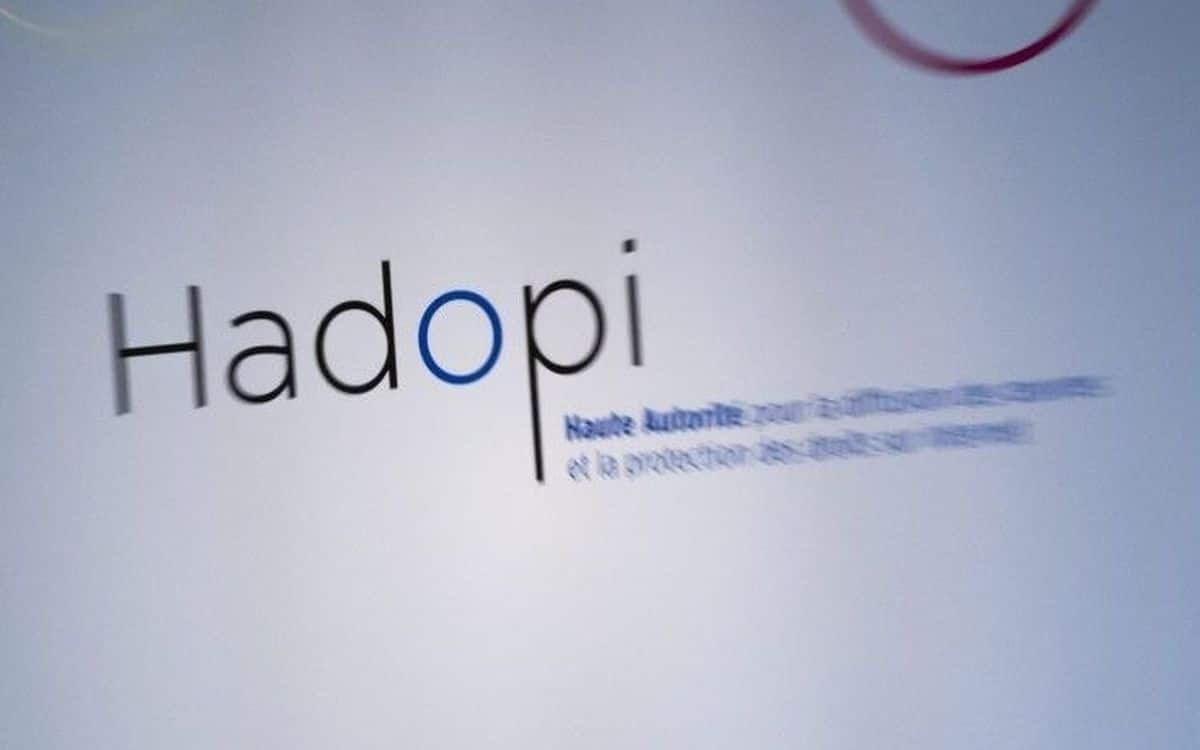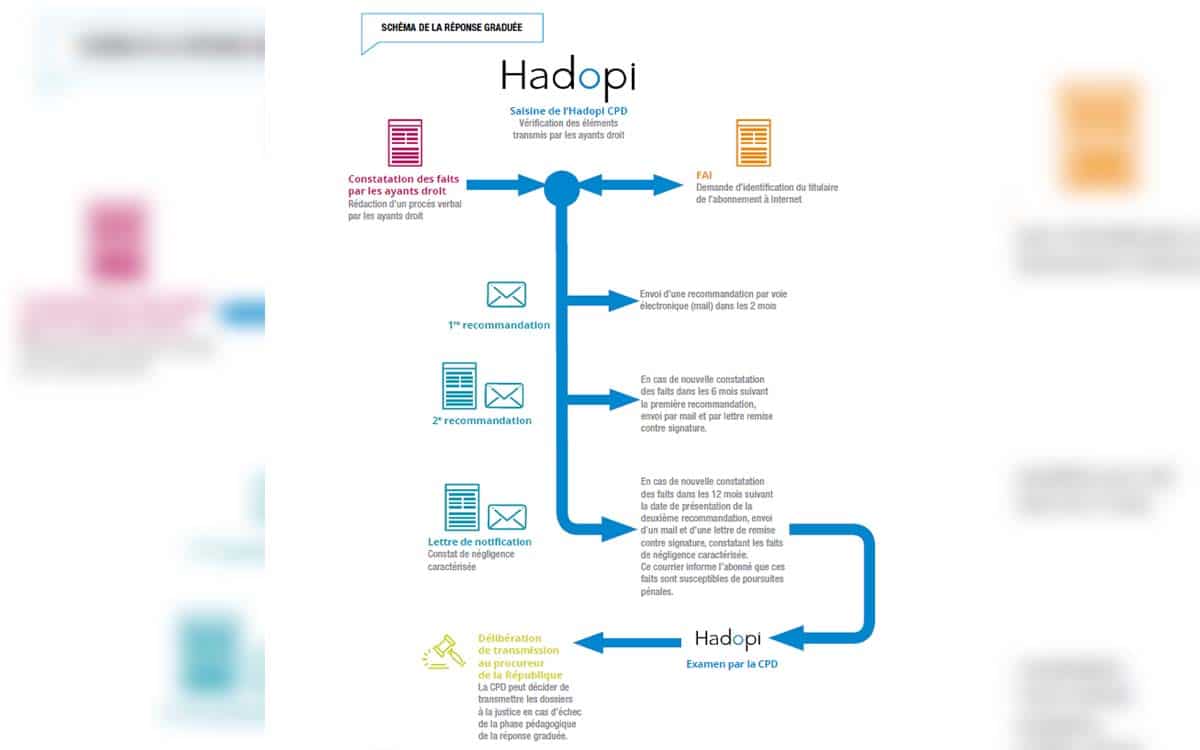Hadopi is living its last days, before merging with the CSA to become ARCOM, the regulatory authority for audiovisual and digital communication, from January 1, 2021. Before taking office, the new structure unveiled in detail its new arsenal against piracy in 2022.
As you may know, the High Authority for the dissemination of works and the protection of rights on the Internet, or HADOPI, is living its last moments. As of January 1, 2022, the structure will merge with the CSA to form a single entity: Arcom for Audiovisual and Digital Communication Regulatory Authority.
And if the Arcom will take over the majority of Hadopi’s prerogatives, this new institution will see its vastly expanded arsenal. This is revealed by a decree published in the Official Journal on December 24, 2021, which details in particular the skills and organization of Arcom in terms of copyright protection on the web. Note that this decree complements the provisions of the new anti-piracy law validated by the National Assembly and the Senate at the end of September 2021 and promulgated in October 2021.
So, what are the new prerogatives of Arcom? First and foremost, authority matters tackle mirror sites, these replicas of pirate sites which have been the subject of administrative sanctions in France. For years now, the impact of the blockades decreed by the courts has been rather limited, the fault of the instantaneous appearance of clone sites.
Mirror sites, Arcom’s new target
PopCorn Time is the perfect example. Despite repeated closings ordered by the American justice, the site has not really disappeared. As the source code was available on GitHub, anyone was able to upload a clone of the platform. It was enough to change the domain name to Popcorntime.app or Popcorntime.net and to set up an automatic redirection of visitors to these new sites. As a result, these sites remain online, despite the sanctions taken against them.
With this new arrangement, Arcom will be able to apply a block on all mirror sites of a doomed platform, preventing it from thriving through other domain names. ”We hope the market will dry up quickly. If potential hackers no longer easily find illegal sites, the practice will decrease as we have seen in other countries ”, says Caroline Guenneteau, deputy general secretary of beIN Media Group in the Echoes column.
Blacklists to prevent funding
In addition, the decree and the anti-piracy law also provide the creation of blacklists from “sites that seriously and repeatedly infringe copyright and neighboring rights ”. According to the words of Pauline Blassel, general secretary of Hadopi, these lists will above all make it possible to “ensure that intermediaries – advertising, means of payment, etc. – no longer work with them (the listed sites) ”.
To the systematic blocking of mirror sites and the establishment of these blacklists, it will be necessary to add the integration of the source port in the data transmitted to the Arcom, valuable data that she can use to track down illegal downloading enthusiasts. This is indeed a major step forward, claimed wrongly and through by Hadopi for ten years now.
Until then and to set up its famous graduated response system (three warning letters that could lead to criminal proceedings), Hadopi had certain data: the subscriber’s IP address, the P2P protocol used, the name of the illegally downloaded works and the name of the internet operator .
Read also: IPTV – illegal streaming weighs 2 billion euros, users exposed to various risks
Integration of the source port, a major advance for Arcom
The source port was not on the list, to the chagrin of the High Authority. Indeed, being in possession of this additional data would have allowed him precisely identify the holder of a contract in the event that he shares the same IP address with several Internet users, due to the pooling of IPs by the operator. This is the principle of “braided” IP addresses.
Due to this practice, some IP addresses remained anonymous. “The lack of identification is most often linked to the predominantly dynamic nature of the allocation of IP addresses and above all to the development of the practice of “braiding” which consists of allocating the same IP address to several subscribers “, Hadopi explained in a report published in 2010.
Already at the time, the institution was demanding body and soul to include the source port in the data transmitted to it. But this request was never taken into account. It must be said that “braiding” allows operators to fight against the shortage of IPv4 addresses still in force in Europe and the Middle East. The adoption of IPv6, the new protocol launched eight years ago, however, is slipping and was not enough to improve the situation.
Finally, Hadopi had to lay down its arms and become Arcom so that it could finally collect the source port and more effectively detect offenders on shared IP addresses. You would have understood it, Arcom has much more substantial resources than its predecessor. All that remains is to hope that its record will be less disastrous than that of Hadopi.



